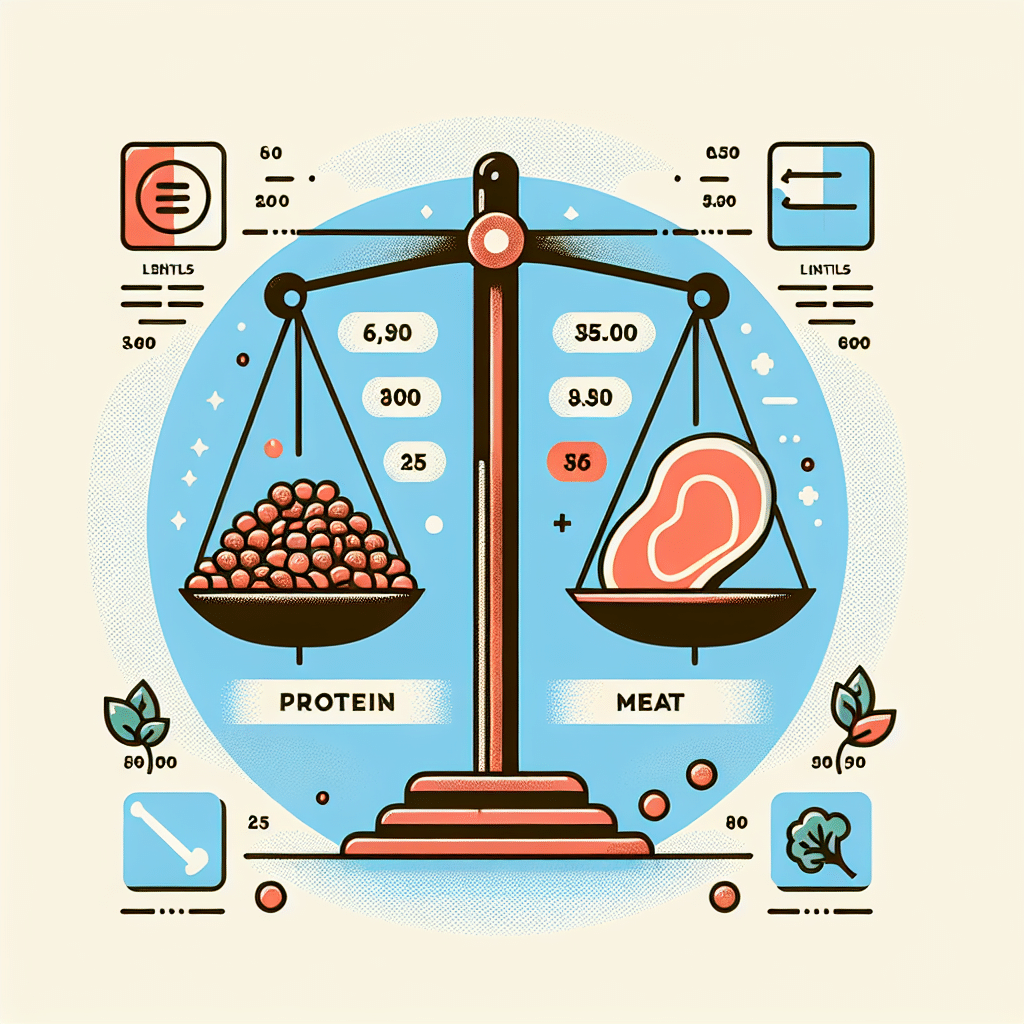Can Lentils Replace Meat For Protein?
-
Table of Contents
- Lentils as a Meat Alternative: Can They Sufficiently Provide Protein?
- Understanding Protein Requirements
- Nutritional Profile of Lentils
- Can Lentils Replace Meat for Protein?
- Complete vs. Incomplete Proteins
- Case Studies and Research
- Environmental and Health Benefits
- Challenges in Replacing Meat with Lentils
- Practical Tips for Incorporating Lentils into Your Diet
- Conclusion: A Viable Protein Alternative
- Discover ETprotein’s Plant-Based Protein Products
Lentils as a Meat Alternative: Can They Sufficiently Provide Protein?

As the world becomes more health-conscious and environmentally aware, the quest for sustainable and nutritious alternatives to meat has intensified. Lentils, a staple in many cultures, have emerged as a promising candidate in this search. This article delves into whether lentils can replace meat as a primary protein source, examining their nutritional profile, benefits, and potential limitations.
Understanding Protein Requirements
Protein is a macronutrient essential for building and repairing tissues, producing enzymes and hormones, and supporting overall health. The Recommended Dietary Allowance (RDA) for protein is 0.8 grams per kilogram of body weight per day for the average adult. However, requirements may vary based on age, sex, physical activity level, and health status.
Nutritional Profile of Lentils
Lentils are legumes packed with nutrients. A 100-gram serving of cooked lentils typically contains:
- 9 grams of protein
- 20 grams of carbohydrates
- 8 grams of fiber
- Less than 1 gram of fat
- Essential vitamins and minerals such as folate, iron, potassium, and manganese
Compared to meat, lentils have a lower protein density but offer additional health benefits due to their high fiber content and low fat.
Can Lentils Replace Meat for Protein?
While lentils contain less protein per serving than meat, they can contribute significantly to meeting daily protein needs. The key is to consume an adequate quantity and complement them with other protein sources to ensure a complete amino acid profile.
Complete vs. Incomplete Proteins
Proteins are made up of amino acids, some of which are essential because the body cannot produce them. Animal proteins are considered “complete” as they contain all essential amino acids. Most plant proteins, including lentils, are “incomplete,” lacking one or more essential amino acids.
However, by combining lentils with other plant-based proteins such as grains, nuts, or seeds throughout the day, one can obtain all essential amino acids, mimicking the complete protein found in meat.
Case Studies and Research
Several studies have shown that diets high in plant-based proteins can support health and fitness goals similar to those based on animal proteins. For instance, a study published in the American Journal of Clinical Nutrition found that diets with a high proportion of plant-based protein were associated with lower mortality rates.
Environmental and Health Benefits
Choosing lentils over meat also has environmental and health advantages:
- Sustainability: Lentils have a lower environmental footprint than meat, requiring less water and land to produce.
- Health: High in fiber and low in fat, lentils can contribute to heart health, weight management, and improved digestion.
Challenges in Replacing Meat with Lentils
Despite the benefits, there are challenges to consider when replacing meat with lentils:
- Protein Quantity: To match the protein intake from meat, larger servings of lentils are necessary.
- Flavor and Texture: Those accustomed to the taste and texture of meat may need time to adapt to lentils.
- Nutrient Absorption: Plant-based iron and other minerals in lentils are not as readily absorbed as those from meat, but this can be mitigated by combining them with vitamin C-rich foods.
Practical Tips for Incorporating Lentils into Your Diet
Here are some practical ways to include lentils in your meals:
- Use lentils as a base for soups, stews, and salads.
- Replace ground meat with cooked lentils in recipes like tacos, burgers, and pasta sauces.
- Snack on roasted lentils for a protein-rich alternative to chips.
Conclusion: A Viable Protein Alternative
Lentils can replace meat as a protein source when consumed in appropriate amounts and combined with other plant-based proteins. They offer numerous health and environmental benefits, making them a viable option for those looking to reduce meat consumption. While there are challenges, with thoughtful meal planning, lentils can be a nutritious and satisfying part of a balanced diet.
Discover ETprotein’s Plant-Based Protein Products
If you’re looking to diversify your protein sources further, consider ETprotein’s range of high-quality plant-based protein products. Their offerings include organic rice protein, pea protein, and various seed proteins, all characterized by a neutral taste and non-GMO, allergen-free attributes. ETprotein’s products are ideal for those seeking sustainable and health-conscious alternatives to animal proteins.
About ETprotein:
ETprotein, a reputable protein and L-(+)-Ergothioneine (EGT) Chinese factory manufacturer and supplier, is renowned for producing, stocking, exporting, and delivering the highest quality organic bulk vegan proteins and L-(+)-Ergothioneine. They include Organic rice protein, clear rice protein, pea protein, clear pea protein, watermelon seed protein, pumpkin seed protein, sunflower seed protein, mung bean protein, peanut protein, and L-(+)-Ergothioneine EGT Pharmaceutical grade, L-(+)-Ergothioneine EGT food grade, L-(+)-Ergothioneine EGT cosmetic grade, L-(+)-Ergothioneine EGT reference grade and L-(+)-Ergothioneine EGT standard. Their offerings, characterized by a neutral taste, non-GMO, allergen-free attributes, with L-(+)-Ergothioneine purity over 98%, 99%, cater to a diverse range of industries. They serve nutraceutical, pharmaceutical, cosmeceutical, veterinary, as well as food and beverage finished product distributors, traders, and manufacturers across Europe, USA, Canada, Australia, Thailand, Japan, Korea, Brazil, and Chile, among others.
ETprotein specialization includes exporting and delivering tailor-made protein powder and finished nutritional supplements. Their extensive product range covers sectors like Food and Beverage, Sports Nutrition, Weight Management, Dietary Supplements, Health and Wellness Products, and Infant Formula, ensuring comprehensive solutions to meet all your protein needs.
As a trusted company by leading global food and beverage brands and Fortune 500 companies, ETprotein reinforces China’s reputation in the global arena. For more information or to sample their products, please contact them and email sales(at)ETprotein.com today.














